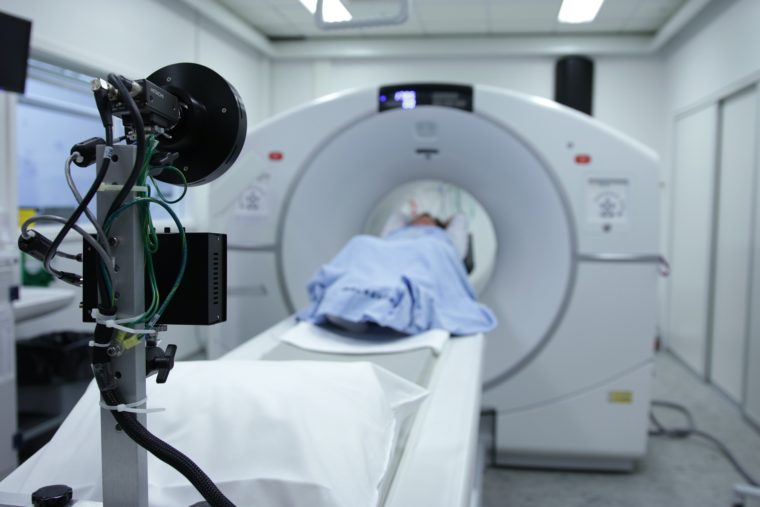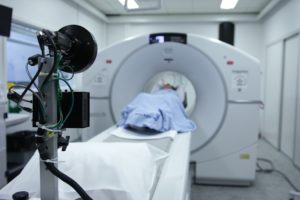
 An abundance of federal funding was made available to health-related organizations at the outset of the COVID pandemic. There is no clear determination about whether that emergency funding will expire in early 2023 or not. Even if it does, billions more in funding will still be available for health-related upgrades.
An abundance of federal funding was made available to health-related organizations at the outset of the COVID pandemic. There is no clear determination about whether that emergency funding will expire in early 2023 or not. Even if it does, billions more in funding will still be available for health-related upgrades.
In October, the U.S. Department of Agriculture (USDA) authorized $110 million to improve rural healthcare facilities. Then, in late November, the Center for Disease Control (CDC) allocated more than $3 billion for health projects and initiatives. This federal funding is directed to state and local jurisdictions and the goal is to strengthen services and modernize operations. Approximately $65 million is available for workforce training and technical assistance programs. Public officials and government contractors should be aware of the funding availability as the country enhances its healthcare infrastructure.
The pandemic exposed persistent shortfalls in health services. Public health centers were suddenly forced to adopt new technologies and make significant changes in operations just to administer basic services at the peak of the pandemic. Modernizing health care services is now a national priority.
The term ‘smart hospital’ appears to be the new goal. Smart hospitals of the future will be using networks of data and technology. They will seek clinical breakthroughs, offer better patient experiences, and develop new capabilities in the field of public health. Aspects of smart hospital plans are beginning to appear in every part of the country. Service providers, technology firms and other companies offering expertise in this area are in high demand as healthcare officials strive to capture some of the available funding to modernize operations and prepare for future emergencies.
A $25 million project to construct a new health and wellness center in Port Townsend, Washington, has been announced. The initiative is about to enter the design phase for a launch in 2023. City officials hope to foster partnerships among public, private, and nonprofit entities.
In the Kips Bay area of Manhattan, New York, a $1.6 billion project is planned for the construction of a science park and research campus. Because of its size, a total completion date could run into 2031 but planning will begin in 2023. The project will have multiple phases.
 This initiative will include construction of a life sciences building that contains state-of-the-art resources for a forensic pathology center. Additionally, City University of New York schools that specialize in healthcare, commercial biotech research and public health services will get new facilities.
This initiative will include construction of a life sciences building that contains state-of-the-art resources for a forensic pathology center. Additionally, City University of New York schools that specialize in healthcare, commercial biotech research and public health services will get new facilities.
Another $1.83 billion project has been announced by city leaders in Lakewood, Washington. The objective of this effort will be to replace the Western State Hospital. The project is currently in the design phase and a completion date of 2027 has been projected. The current facility is limited by its bed capacity and can no longer meet demand. The state health agency is spearheading efforts to deliver a proposed public hospital that will offer at least 350 additional beds.
A large psychiatric hospital in Jamestown, North Dakota, is also set to be replaced. Cost projections for this project range between $150 million to $160 million. Currently in the planning stage, the targeted start of construction is scheduled for some time in 2023. State officials have allocated hundreds of millions to replace the existing 100-bed state hospital that has reached the end of its useful lifespan. The replacement health care facility will likely be smaller, but the plan is for new technologies and a modernized design to convert the building into a state-of-the-art building with more efficient operations. A $2 million funding allocation has also been approved for demolition of the current hospital structure.
A hospital expansion project in Arkansas has been given a construction cost estimate of at least $30 million. The goal will be to expand the Eureka Spring Hospital. Engineering and design work should be completed in 2023 and construction will follow. Officials approved a contract that directs $824,250 toward the schematic design and development stages and the remainder of the baseline-$30 million project’s budget may increase as additional project components are evaluated.
A $212 million project on the University of Iowa (UI) campus will focus on construction of a new modern research facility. UI is launching a slate of major construction projects, beginning in 2023. One of the cornerstones of this widescale building plan is a redoubled investment in health care-related facilities. Additional features include a proposed inpatient tower sited for the university’s main medical campus. Once work begins on these projects, officials say they intend for the UI campus to become the regional focal point for expanded and innovative public health services, learning resources and other public health-related amenities.
In Texas, a $308 million project planned for Tyler, Texas, has caught the attention of providers. Funding for design, development and construction has been approved and a completion date of March 2025 has been announced. The University of Texas (UT) system approved plans for the project which will deliver a medical education facility on the system’s Tyler campus. The UT Tyler Medical Education Building will be designed to provide enhanced public health services for the region. It will be five stories tall and offer 248,000 square feet to support studies that will ultimately elevate healthcare services offered through UT Health’s East Texas Health System. The improved services will include specialty clinical care with modernized exam rooms, laboratory space, new imaging facilities, upgraded equipment and more.
Because every health care related project will involve public and private sector collaboration, now is absolutely the time to get acquainted with planned upcoming opportunities. There is activity in almost every state in the country.
